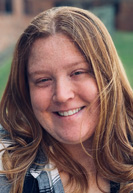Subscriber Benefit
As a subscriber you can listen to articles at work, in the car, or while you work out. Subscribe NowFrom concerns about staffing and caseloads to accusations that it’s failing in its mission to keep children safe, the Indiana Department of Child Services continues to face pressure from child welfare advocates, attorneys and those who have been part of the system.

Where there seems to be some agreement among critics, though, is that reform — not an outright overhaul — is the right path forward.
“You can’t blow up the system,” said Charlie Rice, a Mishawaka attorney currently litigating a civil case that involves DCS. “You’ve got to find a way to fix it.”
Nathan Vining, an Indianapolis criminal defense and family law attorney, said he believes DCS generally has good intentions but described cases that involve the agency as a balancing act.
“The harder you are against the system,” he said, “the more it pushes back against you.”
‘A lot of things that really need to be improved’
Stephaney Knight entered the foster care system at age 13 and didn’t leave until she aged out at 21.

“There’s a lot of things that really need to be improved,” said Knight, who is now a senior at IUPUI studying psychology with a minor in communications. She’s also earning a certification in child abuse and neglect through the School of Social Work.
One of the main issues, she said, has to do with placements. According to Knight, if DCS is having trouble placing a child in a foster home, the department will place them in a residential or group home — even if they don’t have behavioral needs that would typically warrant that placement.
Knight, who is a youth adviser on the state’s Child Welfare Committee, said residential and group homes can create trauma, and it can be difficult to get out of those placements.
Knight’s experience in the system also included lots of placements — so many that she can’t remember the exact number, but guessed it to be more than 30.
Indiana Lawyer asked DCS for a response to specific allegations. A spokesperson responded to some but not all.
According to DCS data, the average number of places a child in need of services stays while in foster care was 2.27 as of the end of August.
Knight said she attended six middle schools during her eighth-grade year to go along with nine or 10 high schools.
‘Damned if they do, damned if they don’t’
What Knight experienced is what Child Advocates Executive Director Cindy Booth calls the “placement circle,” where kids bounce around the system.
Booth said it takes a special person to stay in the DCS bureaucracy and still try to help improve the system.
It’s a “damned if they do, damned if they don’t” situation, she said, because DCS will face criticism for removing too many children, just as it will face criticism if it doesn’t remove the children who ended up being harmed.
According to data from the U.S. Department of Health and Human Services, there were 13,239 children in foster care in Indiana as of Sept. 30 of fiscal year 2021. That was down from 15,084 the previous fiscal year.
A plurality, 21%, were in the system between one and five months. About 5% had been in for five years or longer.
DCS data show the number of CHINS has declined since at least 2017, down to 11,550 in August.
Booth, who is retiring next year, said she would like to see an effort to bring together politicians, judges, DCS officials, community members and those with lived experience to tackle big issues like why children are living their lives in homes that aren’t permanent.
Another idea Booth and others have advocated for is a right to counsel for children in CHINS cases.
The National Association of Counsel for Children reports children appointed specially trained counsel are 40% more likely to leave foster care within their first six months and 45% more likely to reunify with their family.
Child Advocates received funding about three years ago to provide representation to older youth. The organization has represented between 150 and 200 children each year as part of the pilot program, Booth said, and it is working with judges from around the state on a three-year study to show whether it’s effective.
In the courts
On the judicial side, DCS is a defendant in a federal lawsuit brought by Indiana foster children who are alleging the department is failing to keep children safe by not correcting systemic failures.
The three-count class-action lawsuit, filed in August in the Indiana Northern District Court, also names as defendants DCS Director Eric Miller and Gov. Eric Holcomb.
Much of the lawsuit focuses on staff turnover because of high caseloads.
DCS has been “working diligently” to increase staffing and is currently meeting 98% of the caseload standard, a department spokesperson said in an email — up from 76% in 2017.
The plaintiffs in the lawsuit — A.B., et al. v. Holcomb, et al., 3:23-cv-00760 — are represented by SouthBank Legal, as well as Kirkland & Ellis and national advocacy group A Better Childhood.

Marcia Robinson Lowry, executive director of A Better Childhood, said the organization has become “increasingly concerned” about problems with DCS.
Chief among those concerns, Lowry said, is caseloads. She said the state counts cases in a disingenuous way by filing to terminate parental rights and dismissing the cases.
High caseloads, Lowry said, is a “core problem” that leads to other issues.
Since the lawsuit was filed, Lowry said the organization has received almost 100 calls from people in Indiana complaining about DCS.
Meanwhile in state court, DCS Director Miller has been ordered to attend a hearing and explain why the department shouldn’t be held in contempt.
DCS is a nonparty to the civil case — Estate of Judah Morgan, by Jenna Hullett, Personal Representative v. Alan Morgan, 32D01-2301-CT-000004 — that involves a father who was sentenced to 70 years in prison for the torture death of his 4-year-old son.
A plaintiff’s motion for rule to show cause says DCS placed the 4-year-old in the parents’ home and that the department has not been forthcoming with documents related to the child and parents.
In a brief supporting its motion to vacate the hearing, the Indiana Attorney General’s Office said DCS has not acted in bad faith or willfully violated court orders.
The hearing is scheduled for 1 p.m. Sept. 25.
Rice, the plaintiff’s attorney in the state case, said things changed around the start of the pandemic, when he started getting more cases of foster parents “looking to do DCS’s job for them.”
Like others, Rice pointed to staff turnover as a main issue.
He also accused the department of becoming more lax when it comes to how case plans address drug use by biological parents — in an apparent attempt to keep removal numbers from ballooning.
Asked to respond to the accusation that DCS has lowered the bar with case plans, a DCS spokesperson provided a statement: “Our first priority is child safety, which is why DCS has clearly outlined procedures for drug screenings in case management and includes referrals for treatment when indicated.”
‘If we did nothing, nothing would change’
Jenna Hullett is the second cousin of Judah Morgan, the 4-year-old who was killed in October 2021.
The 47-year-old mother of three said the last couple of years have been chaotic.
“We’re going through a lot of depression and anxiety,” she said. “There’s so many negative words I could give you. Most days we feel like we’re falling apart.”
Judah lived with Hullett’s family for most of his life, she said, starting when he was about 4 months old. Then, she said, Judah started a home trial in April 2021 that was supposed to last six months, but DCS closed the case two months in.
According to The Associated Press, video footage from inside the home leading up to Judah’s death showed Alan Morgan punching his son, holding the boy up by his neck and dropping him on the floor, and leaving him alone for hours in a cold basement that had no furniture.
Hullett testified at the murder trial and has also spoken at committee hearings at the Statehouse.
She said it’s been difficult, but also therapeutic.
“If we did nothing, nothing would change,” she said.
She also said she wants Judah to have a legacy.
“We just want him to be remembered for change,” Hullett said. “We want his name to mean the betterment of other children’s welfare, their safety, their well-being.”•
Please enable JavaScript to view this content.

